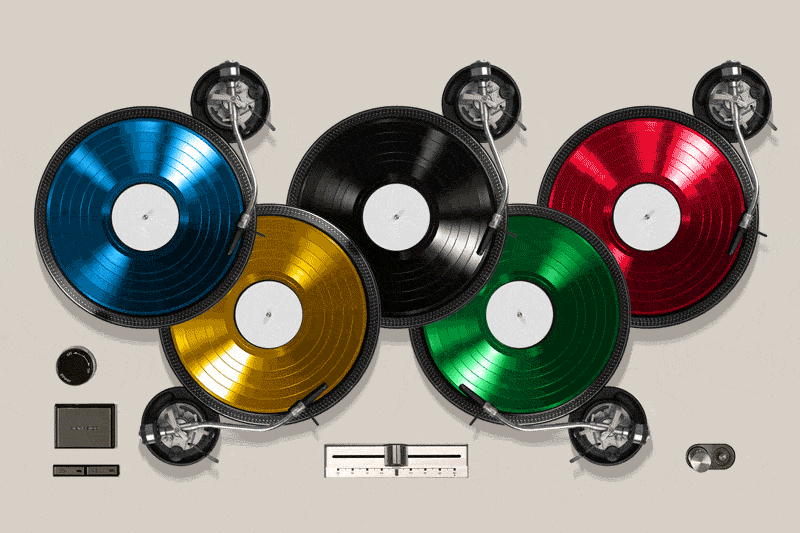In cyberspace, nobody can hear you stream
- Share via
By day, Richard Inman, captain of the East Fork Volunteer Fire Department, makes a living cleaning the pool and sweeping up at the Camp Williams mobile home park above Azusa, where he lives.
Three nights a week, he’s the “Mountain Man.” The transformation starts at 7 p.m., when Inman’s heavy metal and bluegrass radio show goes live from his trailer, which is so deep in the Angeles National Forest that he can’t get cellphone reception.
For the record:
12:00 a.m. March 22, 2007 For The Record
Los Angeles Times Thursday March 22, 2007 Home Edition Main News Part A Page 2 National Desk 0 inches; 25 words Type of Material: Correction
Online radio: An article in Tuesday’s Business section about online disc jockeys gave an incorrect Web address for Artists International Independent Radio. It is www.aiiradio.net.
He addresses his audience as “you guys,” but on this blustery Wednesday night no one is listening. That’s because Inman has been filling dead air, as a fellow deejay points out via instant message.
“OK, I’m not broadcasting,” Inman says sheepishly. “It might help if I was smart enough to turn the mike on.”
In the Internet age, anyone can be a guerrilla disc jockey.
Tens of thousands of radio shows air regularly on the Web, often with audiences whose numbers could fit around a dining room table. Virtually every musical niche is represented.
Mike Konvicka, a music critic in Texas, has a Czech polka show. Another site serves up only versions of “Ave Maria.” A German online deejay does on-air karaoke.
“Digital technology has made everyone a producer of sorts,” said Fritz Messere, communication studies chairman at the State University of New York at Oswego.
Web deejays proliferate because the costs involved are minimal, basic computer and audio equipment being the biggest expense. But a ruling this month by an obscure copyright royalty board could change that, endangering the army of moonlighters who broadcast on the cheap. The action boosted royalties due musicians and record labels whose music is streamed.
On Monday, National Public Radio said it would seek a reversal of the decision, starting with a request for a rehearing. The Digital Media Assn. trade group also asked the copyright board to reconsider.
“It will just allow the really big boys who have other ways of making money to carry on,” said N. Mark Lam, chief executive of the Live365 radio website.
According to data from Arbitron and Edison Media Research, the Internet radio audience has increased 50% over the last year. About 52 million people tune in each month, although many listen to streams from popular broadcast stations.
The exact number of online deejays is unknown because so many, like Inman, stream on at obscure sites that listeners usually stumble onto. Live365.com, which charges disc jockeys $9.95 a month, has as many as 10,000 deejays and guesses that an additional 100,000 or more are on other sites.
Many online deejays are the equivalent of audio bloggers. Although a few have built audiences through AOL and other major services, plenty practically work in an echo chamber.
“We talk to anybody who is listening,” Inman said.
Jason Gordon, a consultant from Fairfield, Conn., usually draws an audience in the single digits for his lala.com show featuring female vocalists. He hopes one day to start a Web station devoted to Icelandic music.
“The five or 10 listeners that I have are with me for a reason,” Gordon said, “and they keep coming back.”
Others, like Kosmo Vinyl, a.k.a. Chris Ruffner of Greenbelt, Md., complain that shows are buried on the Internet. Ruffner tried to promote his show at a club where he deejays in Washington, D.C., but said listeners couldn’t find his station.
Inman’s audience, which he can track by computer, ranges from dozens to, on some nights, zero.
On this evening, Inman takes to the air dressed in white sneakers, blue jeans, a cowboy shirt and a mesh cap. His microphone shares a table with a desktop computer and ashtrays. Next to his PC is a soundboard. Elk horns, from his days working as a hunting guide, are mounted on the living room wall.
“I’m Mountain Man, and tonight we’re going to play some music for you!” Inman shouts into the microphone. “But it’s up to you. You have to do the voting.
“All right, here I am live, old as I am, I shouldn’t be. Most of you have done your voting already. C’mon guys, let’s show some love for some people.”
He’s urging listeners to vote for the top music of the week. But there are distractions one doesn’t find in the soundproof cocoon of a professional radio station. Like the hammering on the wall next door. Or the dog that starts howling.
Inman’s show should run two hours, although that assumes the deejay who follows him on Airradio.net will be on time. When he isn’t, or calls in sick, Inman just keeps going. He once stayed on the air for six hours.
Inman calls his program music for music’s sake. He scouts local, unsigned bands to play and asks for feedback from listeners.
He says he gets hundreds of votes in a week, although he rarely draws more than a dozen listeners on a given night.
Inman socializes online with fellow disc jockeys in a chat room while music plays, showcasing songs from his own country-rock band, Highway 39. One musician threatens to turn off his computer, so Inman accommodates him by playing music from the listener’s group.
Next up is one of the highlights of Inman’s show -- his nightly trivia contest.
He asks his listeners which popular ensemble started under the name Polka Tulk Blues Band, later changed to Earth. A copy of a Bob’s Your Uncle CD awaits the first person with the answer.
A listener e-mails “Black Sabbath,” the correct answer. At least there’s someone out there.
So he asks a second question.
“OK, guys,” he says. “What is the real name of the ‘70s singer-songwriter Lobo?”
Inman is referring to Roland Kent Lavoie, who under the pseudonym scored such soft-pop hits as “Me and You and a Dog Named Boo.”
Inman waits for an answer, then waits some more.
And he keeps waiting.
*
(BEGIN TEXT OF INFOBOX)
Listen up
*
All it takes to be an Internet deejay is a computer, high-speed Internet access, music to play and a method to stream it through cyberspace.
* Some choose to join a service, such as Internet radio network Live365.com, that charges a monthly fee and provides software to play music over the Web.
* Others become members of groups such as AIIR that broadcast online. Still others prefer to go it alone by downloading streaming software such as Shoutcast, which is free.
* Any disc jockey who plays copyrighted material must obtain a license to do so legally.
*
Source: Times research
More to Read
The biggest entertainment stories
Get our big stories about Hollywood, film, television, music, arts, culture and more right in your inbox as soon as they publish.
You may occasionally receive promotional content from the Los Angeles Times.











